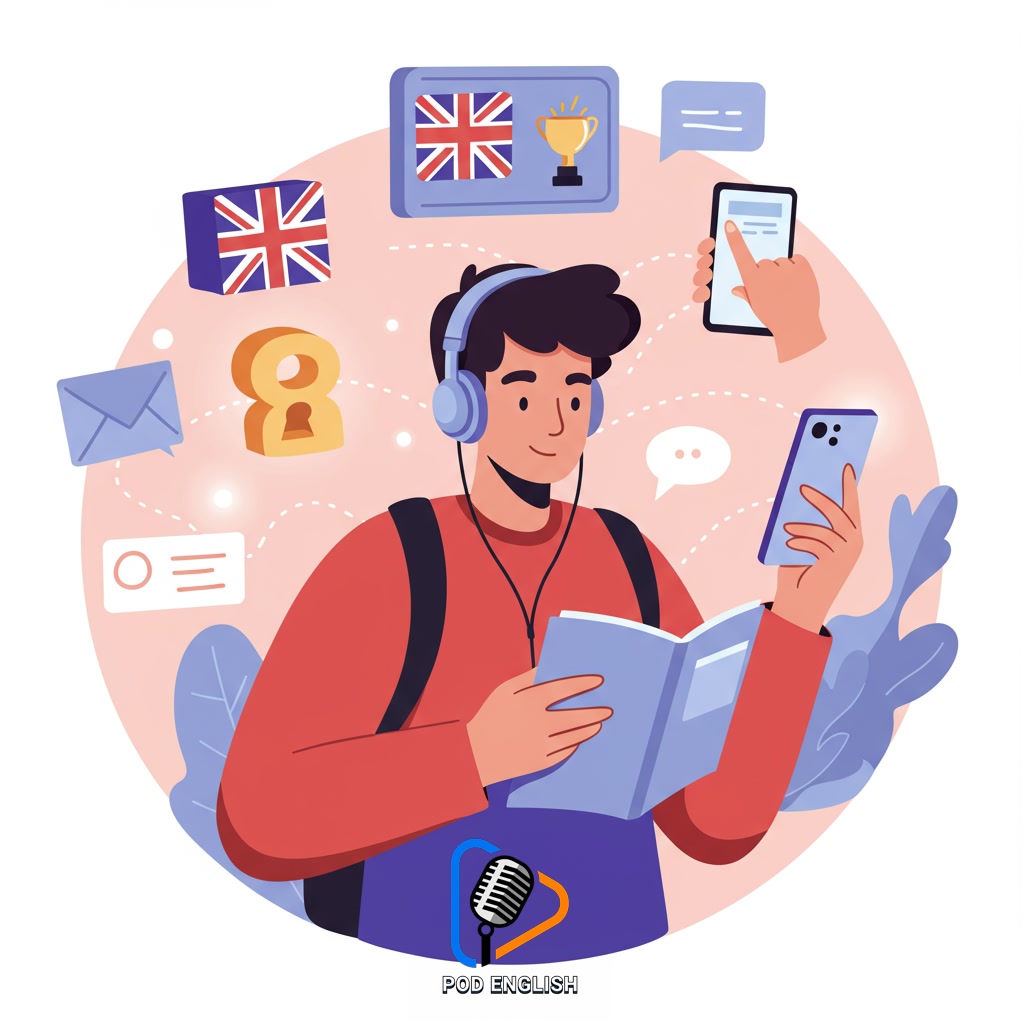Learn English
Unlock Daily English Practice: Finding Learning Opportunities Everywhere

This content focuses on practical methods for incorporating English practice into your everyday life. It highlights the importance of recognizing and leveraging learning opportunities present in various daily situations to enhance language proficiency. By consciously seeking out these chances, you can transform how you study english into a continuous and integrated process. This approach aims to facilitate consistent improvement through regular engagement.
Table of Contents
- Section 1: Why Daily English Practice is Your Key to Fluency
- Section 2: Identifying Everyday Listening and Reading Opportunities
- Section 3: Transforming Passive Activities into Active Speaking and Writing Practice
- Section 4: Leveraging Digital Tools and Communities for Daily Study
- Section 5: Tips for Building and Maintaining a Consistent Daily Routine
- Section 6: Making English Study a Natural Part of Your Life
Section 1: Why Daily English Practice is Your Key to Fluency
Why is practicing English every day so important for becoming fluent? Think of it like building a muscle. You can’t get strong by exercising just once a week. Similarly, consistent, daily engagement with English keeps the language active in your mind. It helps you remember new words and grammar structures better, improves your listening comprehension, and makes speaking feel more natural. Daily practice builds a strong habit, making learning less of a chore and more integrated into your life. This regular exposure is the most effective way to move from understanding English to using it confidently and automatically – truly unlocking fluency.

Sustaining Your English Study with Global Connections
Section 2: Identifying Everyday Listening and Reading Opportunities
Following the understanding that consistent practice is key, the next step is to actively identify where these practice opportunities exist in your daily routine. You might be surprised how many chances you have to improve your English listening and reading skills without needing extra study materials. For listening, think about the music you stream, podcasts you enjoy, or even the dialogue in movies and TV shows you watch. Pay attention to conversations around you, announcements on public transport, or videos online. For reading, look at the signs you pass, product packaging, news articles you browse online, social media posts, or even the instructions for a new gadget. The key is to consciously notice these sources and engage with them, even for short periods. By making this a habit, you transform everyday moments into valuable steps towards improving your English proficiency.

Identifying Everyday Listening and Reading Opportunities
Section 3: Transforming Passive Activities into Active Speaking and Writing Practice
Building on the idea of finding opportunities, a powerful strategy is to transform your passive engagement with English into active practice. Instead of just listening to a podcast or reading an article, actively engage by summarizing what you heard or read aloud, as if explaining it to someone else. If you’re watching a movie, pause and try repeating lines or describing a scene. When you encounter new vocabulary or interesting sentence structures while reading, make a conscious effort to use them in your own spoken or written sentences immediately. This deliberate step turns consumption into creation, significantly boosting your ability to recall and use language naturally for effective communication as you study English daily.

Transforming Passive Activities into Active Speaking and Writing Practice
Section 4: Leveraging Digital Tools and Communities for Daily Study
Building on the idea of transforming passive engagement into active practice, leveraging digital tools and online communities offers a wealth of daily study opportunities. Language learning apps and websites provide structured exercises, vocabulary builders, and grammar lessons that you can access anytime, anywhere. Beyond structured tools, online communities like forums, social media groups, and language exchange platforms connect you with fellow learners and native speakers. Engaging in discussions, asking questions, and practicing conversational English through text or voice chats turns screen time into productive study time. These digital resources make consistent, daily “study english” practice more accessible and interactive, allowing you to fit learning into even the busiest schedules and find support and motivation from a global network.

Leveraging Digital Tools and Communities for Daily Study
Section 5: Tips for Building and Maintaining a Consistent Daily Routine
Establishing a consistent daily routine is fundamental to making continuous progress in studying English. It transforms the often-overwhelming task of language learning into manageable, regular steps. Begin by identifying small pockets of time throughout your day – perhaps 15-30 minutes – that you can dedicate specifically to practice. Schedule these sessions like important appointments. Integrate English activities into existing habits, such as listening to a podcast during your commute, reviewing flashcards while waiting, or reading a short article during a break. Utilize tools like calendar apps or habit trackers to remind yourself and monitor your consistency. Remember that flexibility is key; missing a day occasionally is okay, but the goal is to build a sustainable habit. By consciously structuring your day, you create predictable opportunities to engage with English, turning sporadic efforts into steady improvement.

Tips for Building and Maintaining a Consistent Daily Routine
Section 6: Making English Study a Natural Part of Your Life
Moving beyond dedicated study sessions, the goal is to seamlessly weave English into the fabric of your daily existence. This means transforming ordinary moments into learning opportunities. Consider changing the language settings on your phone or computer, listening to English podcasts or audiobooks during commutes or chores, or reading English news articles while having your morning coffee. Engage with English media you genuinely enjoy, like watching movies or TV shows with English subtitles (or none), or following English-speaking content creators online. The key is to make these interactions feel less like ‘studying’ and more like simply living your life, where English is a natural and integrated component, reinforcing the consistent exposure established by your routine.

Making English Study a Natural Part of Your Life













